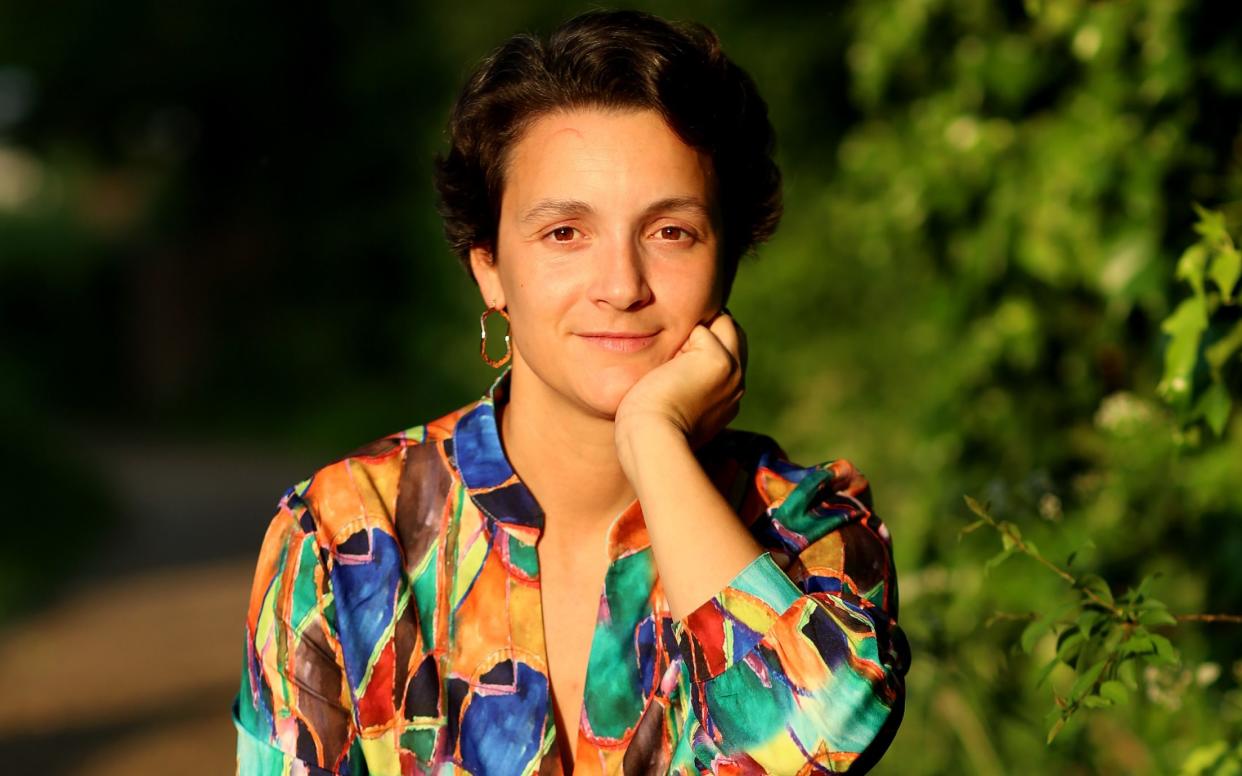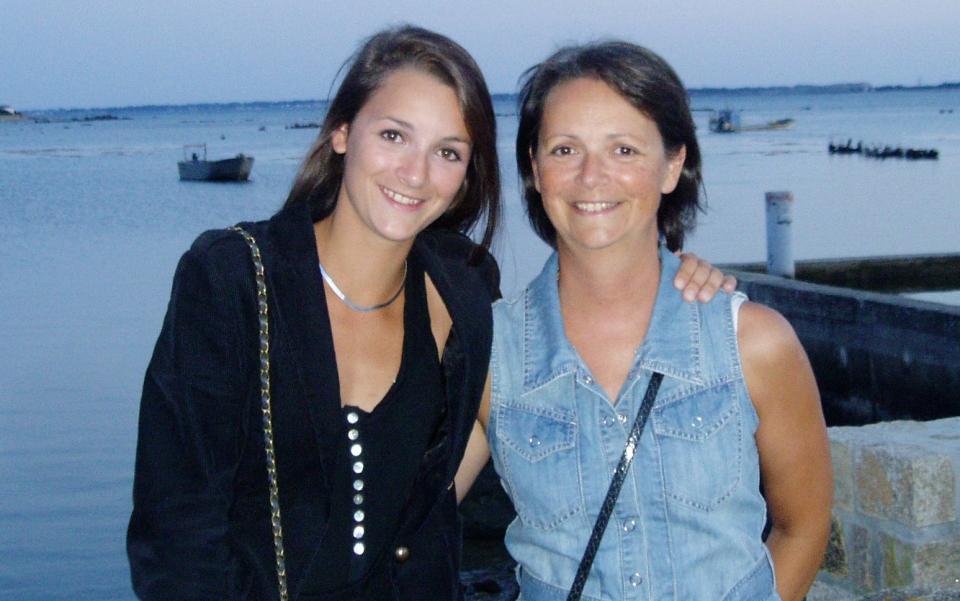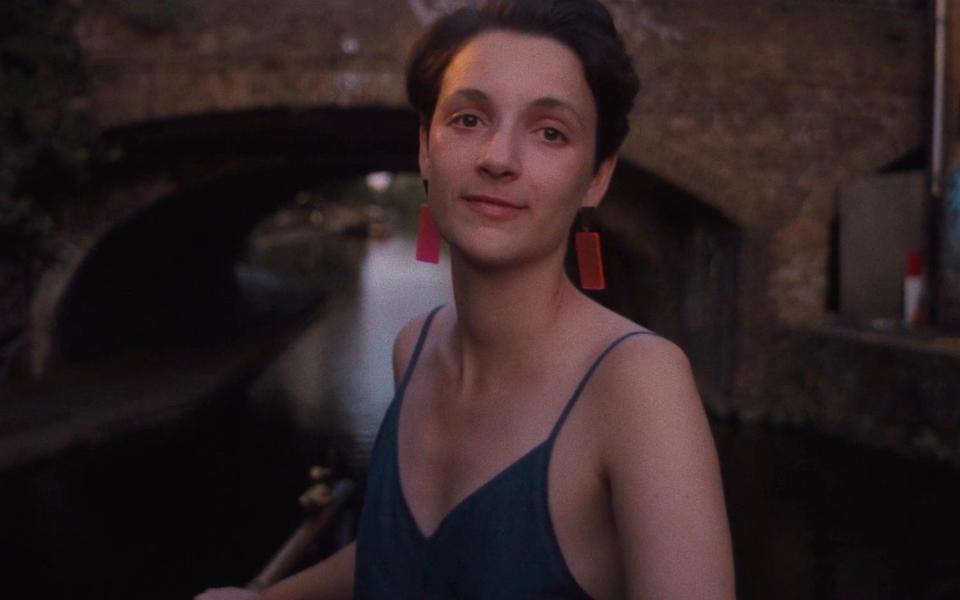Bipolar made my sex drive uncontrollable – it was dangerous

When I was diagnosed with bipolar disorder in 2013 I didn’t want to believe it, I was angry and in denial. At 20, I had my whole life ahead of me, with no wish to be labelled “mentally unwell”. Bipolar disorder is not uncommon – approximately one in 50 people in the UK are diagnosed with it – yet it’s hugely misunderstood. Like many other people, I didn’t really understand what bipolar was. All I knew was that when anyone in films and television shows had it, they all seemed “crazy” and usually had some kind of addiction. But I was ambitious, academic and hardworking.
Bipolar used to be known as “manic depression”, because of those dual, well-documented elements – mania and depression. But until recently, the hypersexual behaviour that so frequently accompanies bipolar disorder was little recognised, and rarely discussed. Partly because those of us who are unfortunate to have experienced it are desperately ashamed. Being totally preoccupied with sex is hardly what anyone wants to admit to, and there’s extra stigma if you’re female.
My mental health issues first reared their head in my second year of university when I was studying social and political studies in London. After a severe bout of insomnia (which with hindsight I realise was mania) I fell into the darkest depression. The lethargy was overwhelming – I couldn’t study or even get out of bed. I didn’t actually want to kill myself, but neither did I feel like living anymore, I just felt numb. I was put on antidepressants and life picked up again after a few months. I was able to study, meet friends and I started dating a boyfriend.
Then the following year, in spring 2013, came my first episode of mania. The only way I can describe it is like having your energy levels go through the roof, it’s almost electrifying, as though the world seems too small; I had an insatiable desire to explore new things, places and people.

Having been a law-abiding person all my life until then, who’d been raised as a Catholic, I suddenly began shoplifting. I went on a trip to Italy, then partied in Berlin and tried MDMA for the first time, it was as if my brain was engraved with the music, and it felt so good.
That feeling I had in the club on drugs, like the world was a brighter place, was pretty much how I felt all the time when I was manic. It made me impulsive and hedonistic.
When my boyfriend sent me a text saying “we need to talk” I knew something bad was coming. He told me I was “a bit too much” and he couldn’t handle me. And I couldn’t handle him ending it.
I flew off the handle and wildly lied that I was pregnant, even using a pen to fake two “positive” lines on the test.
And it got worse. Later that week I’d told him I’d lost the baby and I wanted to kill myself. I even cut my own legs, smearing the blood on my jeans, as though I was having a miscarriage. Of course now I am stable, I am fully aware how utterly unhinged this behaviour seems now, but half of people with bipolar also have psychotic episodes, which is when there becomes a disconnect from reality.
My behaviour was so bizarre and erratic that my best friend Melanie rang my parents, who were living in China at the time where my father worked for a multinational company in Shanghai, and she explained I needed help.

Understandably, they were terrified and flew over. Against my will they had me admitted to a psychiatric hospital in Paris, where they’re from and have family. I knew they loved me and only wanted the best for me, but in my confused state this felt like the ultimate betrayal. I remember spitefully shouting at them “this is how you’ll feel when I put you in a retirement home one day”.
Everyone has mood changes, but when you’re bipolar and they are not treated, the mood and behaviours become intense and extreme.
After two humiliating weeks of having to dress in my pyjamas all day, I was called to the doctor’s office and given my diagnosis of bipolar. The thought of living with the stigma of a mental health disorder was just devastating, as was knowing I would have to forever take medication.
Getting the right pills and dose is a matter of trial and error, finding the right combination is hard because it’s different for every person. For me, this was a long five-year process to finally get right, during which time I gained 20 kilos (over 3st) and was then at risk of diabetes. It was tough, and felt like hurdle after hurdle was put in my way to live normally. But slowly I was able to get my life back on track and graduate.

I’d fallen in love again, with a woman, back in 2014. And the next three years were happy ones. In fact, I was feeling so well, and had managed to lose the weight, that I made the classic mistake of believing I was better and no longer needed the medication. Without consulting my psychiatrist, I simply stopped taking the pills. For the first three months this was fine because they remain in your system but then, in April 2017, my manic symptoms crept back again, and this time bringing hypersexual behaviour along for the ride.
There is so much shame attached to women, sex and desire in society anyway, so displays of hypersexual behaviour – when your sex drive dramatically increases to the extent it’s uncontrollable – is a whole new level of taboo.
Despite being in a happy relationship with an amazing person I was driven by a compulsion to cheat. When you’re in the midst of an episode you’re not thinking about hurting them, you’re just chasing thrills.
I would approach strangers in bars and touch their hair flirtatiously, I downloaded dating apps, frantically meeting so many men. Because I wasn’t in my right frame of mind, all the usual dating boundaries a sensible person would naturally have just weren’t in place. I was unsafe.

One particular evening, I went to a man’s place, and when he started initiating sex I realised I wasn’t feeling it. When I suggested he stop, he raped me.
My mind has blanked out the horror of the details, memories are clever that way, but I remember leaving his place and trying to slam the door but he stopped me “Shh, the neighbours might hear”. It was surreal.
I just wanted to get home and wash.
I didn’t tell anyone for many many months but just repressed the feelings and got on with life. So many rape victims don’t report the crime because, like me, they feel they are to blame. I felt dirty and deeply ashamed. I shouldn’t have gone to his house. It was all my fault.
Feeling like you can’t trust yourself is terrifying, but during these hypersexual episodes there is a complete lack of self-control. It’s especially hard to deal with as you know no-one will understand it and you’ll be judged for being “promiscuous”.
I eventually opened up to my friend Melanie about what had happened to me. And after I had a course of psychotherapy on the NHS in 2021, I was ready to fully talk about being bipolar, about all the stigma it brings, and to talk about the rape. I also took part in research about cognitive remediation therapy (CRT) at King’s College London, and feeling like I had an active role in my own treatment really helped me feel more empowered.
Sadly, I know my experience is relatively common. The latest research shows that one in five of people with bipolar who have experienced hypersexual behaviour has been raped during an episode, a similar number had experienced an unplanned pregnancy (which is why I now have the coil fitted as a precaution) and in over half the cases, an episode leads to the breakdown of a relationship, as it indeed ended mine.
This illness doesn’t just affect me but it’s had a massive impact on the people I love, my friends and parents who have had to help put me back together again.
Earlier this year with my friend Melanie I made a documentary, Trust Me, with funding from the British Film Institute, about my experiences with bipolar. My parents came to watch the screening and Dad cried and told me how proud he was of me coming through the other side and being brave enough to be open about it.

I’ve even been in touch with the ex-boyfriend who I faked the miscarriage with and he was so understanding once he knew more about bipolar.
Making the documentary, getting the therapy and finally getting my medication right have all made a difference to my life now. And I’m happy to say I’ve moved on from what happened and have been able to form loving and meaningful relationships.
Thankfully, I’ve been stable now since 2017 and haven’t had an episode since then. Having a routine and taking care of my physical health — getting sleep and exercise – really helps. I’ve established my career in climate change adaptation at a big London firm and I choose to live on a narrow boat, being surrounded by nature soothes me, watching the ducks and listening to the birds brings me calm and peace.
I’ve done a lot of work to help understand the shame so I don’t have to bear it now. No one talks about hypersexual episodes, despite how common they are, but by sharing my own dark times I hope others might feel able to talk to their doctors and get the help they need, too. It’s also crucial that more healthcare professionals are aware of hypersexual behaviour and its link to bipolar, to be able to treat it seriously as a symptom.
If, one day in the future I decide I would like to have children, it would involve coming off medication so would need a lot of consideration. I know there’s always a chance I can have another episode and have to accept that this is part of me and it’s shaped my life and who I am. It defines me, but I won’t let it own me.
As told to Susanna Galton
The link between bipolar and hypersexual behaviour
Hundreds of thousands of people living with bipolar disorder in the UK could be experiencing periods of “hypersexual behaviour”, according to a landmark new study published in The Lancet Psychiatry Journal.
The research, conducted by Bipolar UK, marks the first time hypersexual behaviour and bipolar disorder have been linked. Over 1,500 people with bipolar were surveyed, with 88 per cent reporting they’d experienced hypersexual behaviour. One in five had been raped or attempted suicide as a result.
Frequently misunderstood, it takes on average 9.5 years to get a diagnosis for bipolar disorder which affects over one million people in the UK.
Potentially hundreds of thousands of these people experience hypersexual behaviours, defined as an “unusual or excessive concern with or participation in sexual activity,” leading to people taking life-threatening risks.
Dr Clare Dolman is the lead researcher and co-chairman of the Bipolar Commission, she herself has bipolar disorder.
“The vast majority of those living with bipolar experience hypersexual behaviour, with 69% of those saying they had tried to seduce someone; and 54% saying they had put themselves in potentially dangerous situations as a result.
“The consequences of this can be devastating. Over half [54%] lost a relationship; with a quarter saying that they had contracted an STI, and 19% saying it had resulted in an unplanned pregnancy.
“Heartbreakingly, 22% of respondents said they had been raped during a period of hypersexuality (28% of women, 9% of men), and more than a third said they had been sexually assaulted (42% of women, 15% of men).”
The negative impact is huge, with 40% left feeling ashamed and 61% experiencing suicidal thoughts.
One in five respondents reported they had attempted suicide because of a period of hypersexual behaviour or its consequences.
Bipolar UK is the only national charity dedicated to supporting people affected by bipolar. For more information, visit www.bipolaruk.org

 Yahoo News
Yahoo News 
